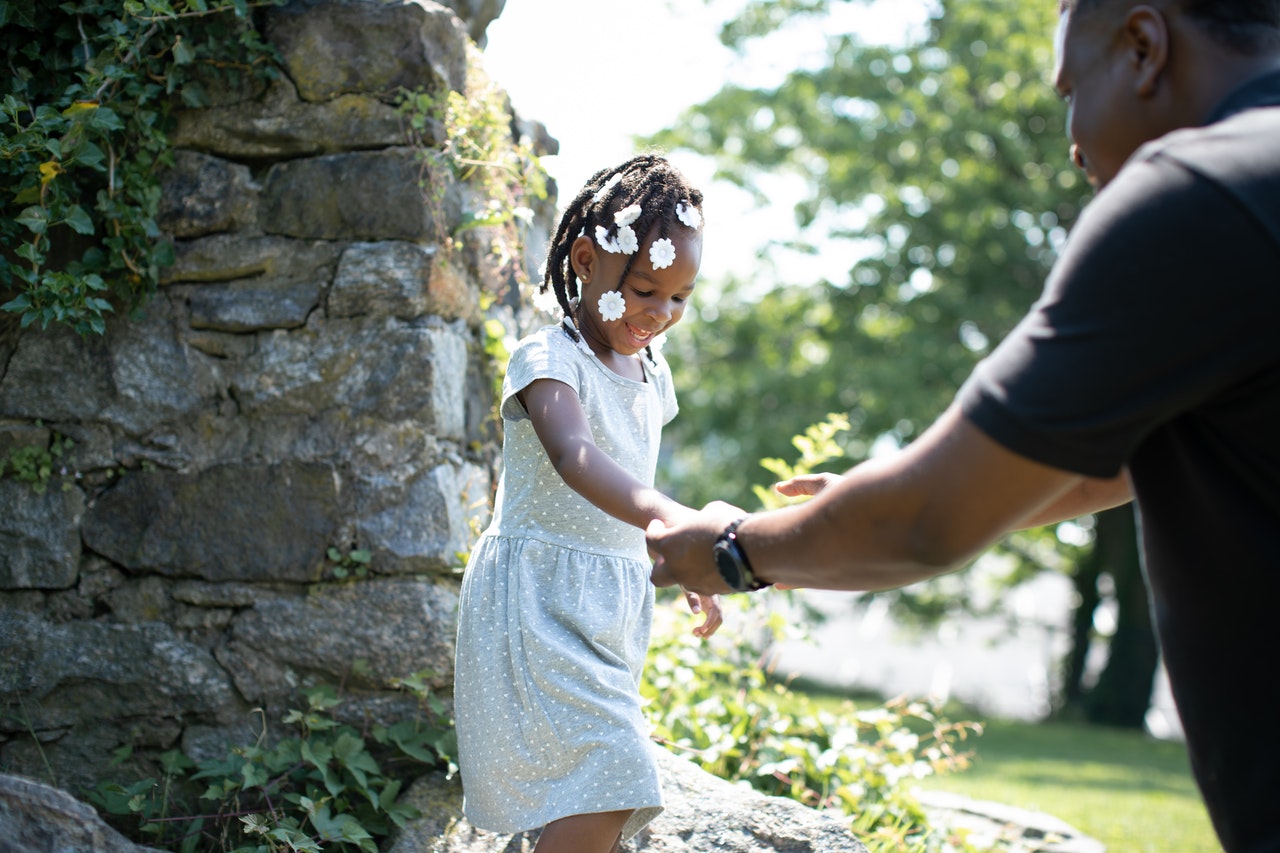“When one is abandoned, one is left alone. This can happen through physical absence as well as physical presence. In fact, to be abandoned by someone who is physically present is much more crazymaking.” – John Bradshaw
What are Abandonment Issues?
Abandonment issues in adults can be linked to early childhood trauma. Abandonment issues can impact how a person shows up in relationships, romantic or platonic, and how they may or may not show up for themselves in their daily life. Individuals with abandonment issues may fear being left alone or fear feeling lonely due to the absence of either their parents or influential people within their lives.
Issues that can arise from abandonment are a constant fear of loneliness, increased anxiety, depressed mood, self-sabotaging behaviors, severe anger, irritation, low self-esteem/low self-worth, and frustration.
What is the Abandonment Core Belief?
The driving force behind abandonment issues in adults is the abandonment core belief. Core beliefs are beliefs, thoughts, or perspectives individuals have about who they are, who other people are, and how the world around them functions. The core belief is an individual’s fear of loneliness, rejection, and abandonment. An individual with an abandonment core belief may or may not have grown up with parents or influential persons who were unreliable, not present physically or mentally, or who may have even passed away.
Individuals may often feel lonely so they may cling to others to have their needs met. In addition, some individuals may push intimate relationships away out of fear that that person and/or people they are connected to could also abandon them in the future.
The core belief of abandonment is about more than just being afraid of being abandoned by those you may care about the most. It is the most foundational principle you may have about yourself and your worth or importance in the world.
the world.
The overarching thought or conclusion that comes to mind or that impacts all your decisions is some variation of this belief: No matter what, people will leave. No matter what, people are unreliable. People will never stay. There is no way to count on other people because people in general always leave. Because of this profound perspective that is so deeply embedded in an individual they often believe harmful thoughts about themselves and their value in the world.
“All people cross the line from childhood to adulthood with a secondhand opinion of who they are. Without any questioning, we take as truth whatever our parents and other influentials have said about us during our childhood, whether these messages are communicated verbally, physically, or silently.” – Heyward Ewart
Abandonment Issues in Adults and Spirituality
Sometimes when an individual is impacted by early trauma or abandonment challenges it can also impact the relationship they may have with God. It creates an atmosphere of distrust and unsureness which can complicate how much they believe in God and God’s will and purpose for their life.
Abandonment issues in adults increase anxiety, depression, and fear of loneliness, and if the overall thought is that no matter what people always leave, that thought process can impact their spiritual belief systems to include God in the realm of people who always leave.
Spirituality should be a connecting force to cope with abandonment issues but sometimes one can blame God for the loss of important family and friends and feel abandoned by God. Individuals with an abandonment core belief can attribute the loss of parents, abandonment of friends, or rejection of others as God also abandoning them and rejecting them.
Some may think, “why would God let this happen?” “Why would God allow people to keep abandoning me?” having a secure spiritual connection can be the difference between this question/sentiment and this statement, ” I don’t know why people keep leaving me, but I know God never will.”
1. Core Belief:
 Recognize abandonment as a core belief that has developed due to the trauma you have experienced in early childhood or early adulthood. Admit, agree, and come to terms with the fact that abandonment issues have and are impacting your life and relationships.
Recognize abandonment as a core belief that has developed due to the trauma you have experienced in early childhood or early adulthood. Admit, agree, and come to terms with the fact that abandonment issues have and are impacting your life and relationships.
Take some time to understand why this core belief has developed and in what areas it is impacting your life, such as romantic relationships, occupation, platonic relationships, self-esteem, self-worth, etc.
2. Triggers:
Recognize the triggers of your abandonment issues. Most times there will be a situation or event that triggers a thought or emotion connected to your Abandonment. It is important to be in tune and present with your body, thoughts, and emotions so that you can catch the trigger right away. If you are not present and in tune, you may have extreme emotional reactions without being able to separate the situation from your core belief.
Be aware enough to recognize and understand how that situation has triggered you and what the little person inside of you is experiencing.
3. Thinking Traps:
Learn and understand your negative thinking traps that are now very apparent due to your abandonment issues. Thinking traps are perspectives and ways of thinking that are negative, familiar, and constant due to past trauma or beliefs that were placed on us, and which contribute to abandonment issues in adults. This link discusses twelve thinking traps that individuals should understand and be aware of: https://www.mindsethealth.com/matter/thinking-traps-cognitive-distortions
4. Record Keeping:
Write down all of the events, triggers, or situations that impact your abandonment core belief using the CBT recording track. Create new healthy thoughts by reframing your thoughts using the automatic thought sheet. https://www.therapistaid.com/worksheets/automatic-thoughts.pdf
5. Healthy Coping Skills:
Use self-soothing touch, statements, affirmations, and self-talk to ground yourself and separate your issues from the situation. Understand what you are desiring and how to give yourself that desire. Self-soothing affirmations such as creating words, images, and mantras that make you feel calmer.
6. Attend Therapy and Group Therapy:
To help you learn more and dive deeper into the habits that have formed due to your abandonment issues, find a group or therapist that you feel safe with and open yourself up to learning more about your past trauma and how to recover from the pain and fear to have healthier relationships with yourself and with other people.
“As you recover, you will find yourself letting go of many of your negative beliefs. You will discover that many of the so-called truths you were raised with and forced to believe are not truths at all. With this perspective, you will come to see, for example, that the names you were called as a child are simply not true. You are not ‘stupid,’ ‘lazy,’ ‘ugly,’ or a ‘liar.’ You can discover just who you really are. You can let go of your pretenses and masks and discover who the real person is underneath.” – Beverly Engel
Closing Note
Abandonment issues in adults can begin early on in life or anytime within your primitive years. As a child or young adult, you seek safety, reassurance, validation, and comfort. The first individuals to provide that are parents, grandparents, family members, teachers, community members, church members, friends, peers, and then romantic and platonic friendships.
If there is trauma during the years where emotional intelligence, self-assuredness, and confidence are being built, one could experience a negative core belief about themselves and the way the world operates. For an adult, it is important to be aware of and recognize these core beliefs because they can impact your ability to have safe and healthy friendships, relationships, and occupational relationships.
As an adult whose inner child may not be healed from their abandonment, you will have to do work to become aware of when it is being triggered and how to address it in the moment and process it moving forward.
If you or someone you know is dealing with abandonment issues in adults due to an abandonment core belief, please do reach out to a therapist to help you figure out how to manage your trauma and work through your healing. I would love the opportunity to work with you and to help you find peace for yourself and your inner child.
You are not responsible for the trauma that you have endured but you are responsible for your own healing. Let me walk through this journey with you to increase your enlightenment, peace, and comfort.
“Depressed”, Courtesy of VicTor, Nappy.co, Public Domain; “Taking Notes”, Courtesy of ChildrenNatureNetwork, Nappy.co, Public Domain; “Father and Daughter”, Courtesy of ChildrenNatureNetwork, Nappy.co, Public Domain; “Pink Flowers”, Courtesy of TheRealog, Nappy.co, Public Domain


